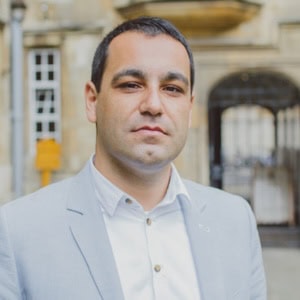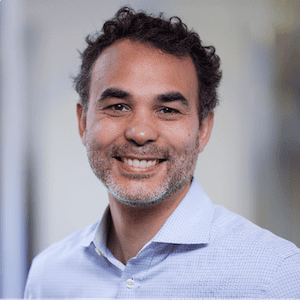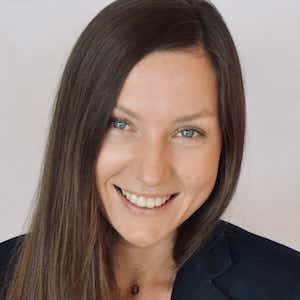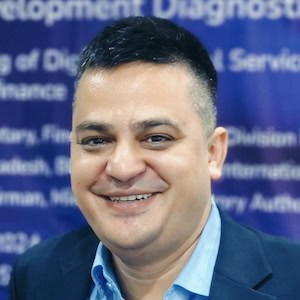-
Rethinking the ‘Youth Are Not Interested in Agriculture’ Narrative
Agriculture is the backbone of many sub-Saharan countries and, anecdotal evidence aside, it's not necessarily true that youth are not interested in it. But the sector won't reach its huge potential, and "agripreneurs" won't get the support they need, until certain government and private sector structures and processes are transformed.
- Categories
- Agriculture, Social Enterprise
-
Leveraging Technology for Good: An Interview With June Sugiyama, Director of the Vodafone Americas Foundation
With its parent corporation ranked as one of the top telecom companies in the world, Vodafone Americas Foundation's focus is a natural fit: "We support projects that use technology for social impact," says June Sugiyama, the foundation's director. In this Q&A, recorded at the SOCAP16 conference, she discusses the foundation's multifaceted work.
- Categories
- Technology
-
Mobile Money Meets Microcredit: Three Key Decisions in Taking a Concept from Design to Pilot
SAJIDA Foundation in Bangladesh is using evidence from data analytics, business case analysis and client research to improve cross-selling as part of the OPTIX project. Three key evidence-based programmatic decisions were necessary to take a new mobile financial service-based microfinance initiative from the design table to being piloted in the field.
- Categories
- Finance
-
India vs. Pakistan: The Pros and Cons of Two Radically Different Digital ID Systems
India’s digital identification system, Aadhaar, has registered nearly 80 percent of India’s 1.3 billion citizens. Just across the border, Pakistan's NADRA system has issued 120 million identities among the country's 180 million citizens. Both systems give citizens an ID and can give them access to both government and commercial services, yet they are radically different. Which approach provides the best model for other countries?
- Categories
- Technology
-
Weekly Roundup: Preventing Zika, Improving Microfinance and Percolating Progress
It’s not too early to start thinking of creative differential pricing strategies that might help poor people afford a Zika vaccine; it's not too late for microfinance to regain some of the allure it's lost in recent years; and the time is just right for East Africa to up its coffee production game. Read all about these items, and more, in our Weekly Roundup.
- Categories
- Uncategorized
-
How the Securing Water for Food Challenge Seeded My Social Enterprise
In 2013, Reel Gardening applied for and won funding from Securing Water for Food (SWFF) – which helps accelerate technology-based solutions that enable more food to be produced with less water in developing countries – and that money proved to be pivotal in the social enterprise's success. SWFF is funding more innovators this year; the deadline to apply is Monday.
- Categories
- Agriculture
- Tags
- lending, partnerships
-
The G2P Silver Bullet? Not So Fast.
Many governments offer cash transfers to millions of people at or below the poverty line, most of whom are not connected to the formal financial system. If these cash transfers are funneled into bank accounts rather than paid directly out in cash, these people immediately gain an on-ramp to financial services. But there is a resounding dissonance between enthusiasm for this solution, and the evidence to date.
- Categories
- Uncategorized
-
Beyond Imagination: GE, Miller Center Helping Keep Moms, Children Healthy
A pilot called healthymagination Mother and Child – a unique partnership between Santa Clara University’s Miller Center for Social Entrepreneurship, based in Silicon Valley, and GE, which is investing $20 million in the joint venture – accelerates much-needed medical innovations in nine countries across sub-Saharan Africa.
- Categories
- Health Care, Social Enterprise, Technology










